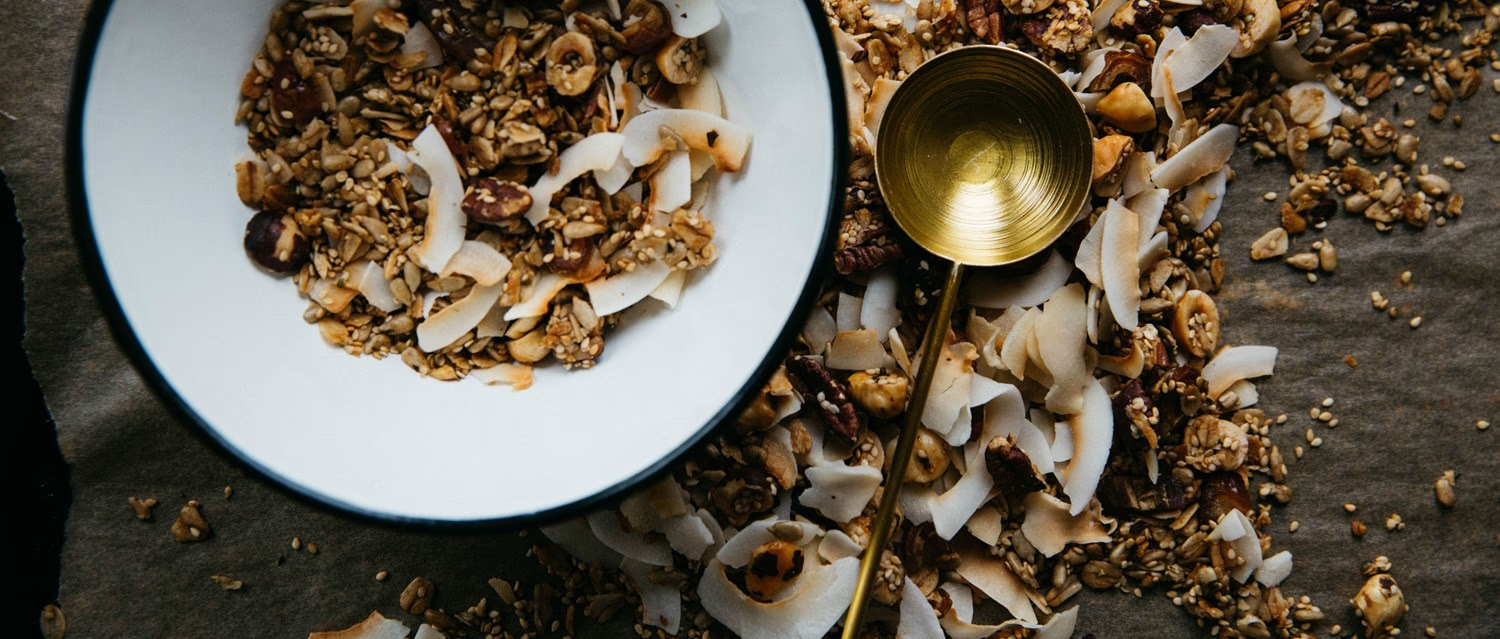
Fibre, low FODMAP diet and gut bacteria
Peer reviewed by Dr Sarah Jarvis MBE, FRCGPLast updated by Dr Sarah Jarvis MBE, FRCGPLast updated 11 Oct 2017
Everyone has heard of fibre in food – the kind that keeps your bowels working and helps guard against piles, diverticular disease and even bowel cancer. While its health benefits have been expounded since the days of Hippocrates, it’s only with the advent of our modern, refined diet that research into the role of fibre has really taken off.
In this article:
In fact, it’s only just over half a century ago, in 1953, that the term ‘dietary fibre’ was first coined. Today, fibre is old hat and it’s all about gut microbiota (the pet name for the collection of bacteria living in all our guts), probiotics and prebiotics. But they have more in common with old-fashioned fibre than you might think.
Continue reading below
Fibre and food - where did the fashion start?
All doctors have heard of the Irish surgeon Denis Burkitt, who first described the childhood cancer Burkitt’s lymphoma, which bears his name. He saw his first case while he was working in Africa, and it was his work in Africa and the UK that gave rise to his other lifetime work on dietary fibre. When he returned from Africa to Britain, he realised he was dealing regularly with all sorts of bowel diseases he had never seen in Africa.
Patient picks for Diet and nutrition
Bestselling books
The result was the 1979 international bestseller, ‘Don't forget fibre in your diet: to help avoid many of our commonest diseases’. It had a huge impact - in fact, my medical student thesis, which won the Oxford University Community Medicine prize, was entitled ‘The role of fibre in the aetiology of disease’. One of the examiners told me I had ‘caught the mood of the moment’.
Folk cottoned on to the fact that people with a high-fibre diet tend to weigh less, and a thousand diet books, starting with the F Plan diet book, in 1982 were born. But back in the heyday of the F Plan Diet, we didn’t pay much attention to the fact that there were two fundamentally different types of fibre.
Continue reading below
Two sides of the fibre coin
Insoluble fibre (the kind that keeps you regular) is largely made up of cellulose, a plant polysaccharide that our body can’t absorb. This passes straight through the gut, helping to bulk out our stools and cutting constipation and all the conditions that it can cause. It may also have an impact on the risk of heart disease, possibly because of its beneficial effect on weight.
Soluble fibre, on the other hand, forms a gel in the gut, slowing down the absorption of foods and cholesterol in the gut. More recently, we have come to realise that the results include an improvement in the sugar spikes seen after eating, improving insulin resistance and possibly guarding against type 2 diabetes. Regular soluble fibre also leads to a drop in both total and ‘bad’ LDL cholesterol. Soluble fibre, in the form of inulin, fructo-oligosaccharides, and other oligosaccharides, are now included in US dietary guidelines.
IBS and fibre
Irritable bowel syndrome, or IBS, is one of the most common gut conditions I see in my practice. That’s hardly surprising - it’s common, affecting up to 1 in 5 people at some point; it’s often highly distressing, with its combination of pain, bloating, wind, changing bowel habit and more; and it’s not curable.
As a medical student at the peak of F plan fever, I was obsessed with fibre. But when my great aunt Winifred came to stay, we had to stock up on white bread and low-fibre foods. She had a ‘spastic colon’ and stuck rigidly to a low-fibre diet - for a condition which today would be labelled IBS.
Fibre can be very helpful for some patients with IBS, particularly if they suffer more from constipation than diarrhoea or a combination of the two. But insoluble fibre, found in wholemeal and wholegrain foods, can actually make symptoms worse. That’s why focus has shifted in recent years to looking at soluble fibre, but even here the situation is complicated.
Continue reading below
Fibre - what’s where?
According to the Micronutrient Center of the Linus Pauling Institute, the five plant foods highest in fibre are legumes (beans, peas and lentils), wheat bran, prunes, Asian pear and quinoa. If you don’t have IBS, this is a shopping list - 8 in 10 of us eat less than the recommended amount of fibre. If, on the other hand, you suffer from IBS, the foods in this list containing insoluble fibre at least are almost certainly best avoided.
Basically, any wholegrain or wholemeal foods, along with fruit and vegetable skins, are high in insoluble fibre. Soluble fibre is found in oats, barley, aubergines, bananas, Jerusalem artichokes and strawberries.
Fruit and veg with skin, like potatoes, sweet potatoes, plums, berries, peaches and nectarines, have flesh high in soluble fibre but skin high in insoluble fibre. Legumes, apples and pears also contain both soluble and insoluble fibre.
FODMAP foods
But even some foods high in soluble fibre can be a problem for IBS sufferers. In recent years, the low FODMAPs diet has brought relief to many IBS sufferers - and some of the foods it recommends avoiding come straight from the high soluble fibre list.
FODMAP stands for Fermentable Oligosaccharides, Disaccharides, Monosaccharides, and Polyols. The point about the ‘fermentable’ bit is that gut bacteria create gas when they’re digesting them. This can contribute to wind, bloating and pain if you have IBS.
High FODMAPs foods | Low FODMAPs foods |
Cauliflower | Aubergine |
Beetroot | Kale/green beans |
Sweetcorn | Broccoli |
Asparagus | Carrot |
Peas/mangetout | Parsnip |
Onions | Tomato |
Mushroom | Lettuce |
Apples/pear | Banana |
Plums/peaches/nectarines/apricot | Grape |
Figs/mango | Orange/clementine |
Cherries/blackberry | Strawberry/raspberry |
Wheat noodles/gnocchi | Rice noodles/rice |
Wheat/rye bread | Sourdough spelt bread |
Almond/cashew/pistachio | Peanut/seeds/walnut |
Muesli/wheat flakes | Porridge/oat |
Cream cheese | Cheddar, cottage cheese, feta, Mozzarella, goat’s cheese, Parmesan |
The FODMAP diet isn’t easy to follow, and ideally should be used under advice from a dietician. Many IBS sufferers are turning to prebiotics and probiotics instead. One thing is certain - IBS is no fun, and any relief is welcome.
Article History
The information on this page is written and peer reviewed by qualified clinicians.
11 Oct 2017 | Latest version

Feeling unwell?
Assess your symptoms online for free

